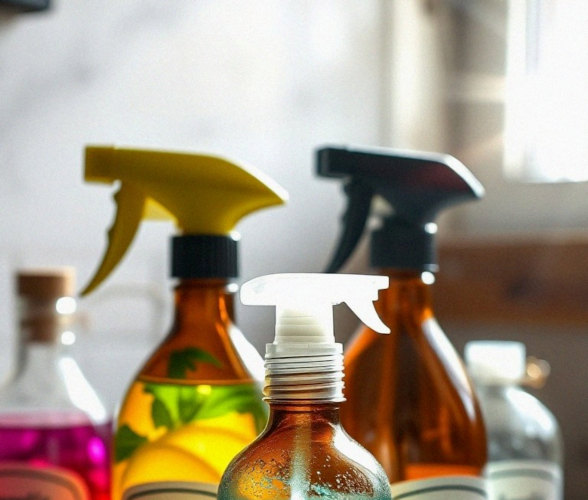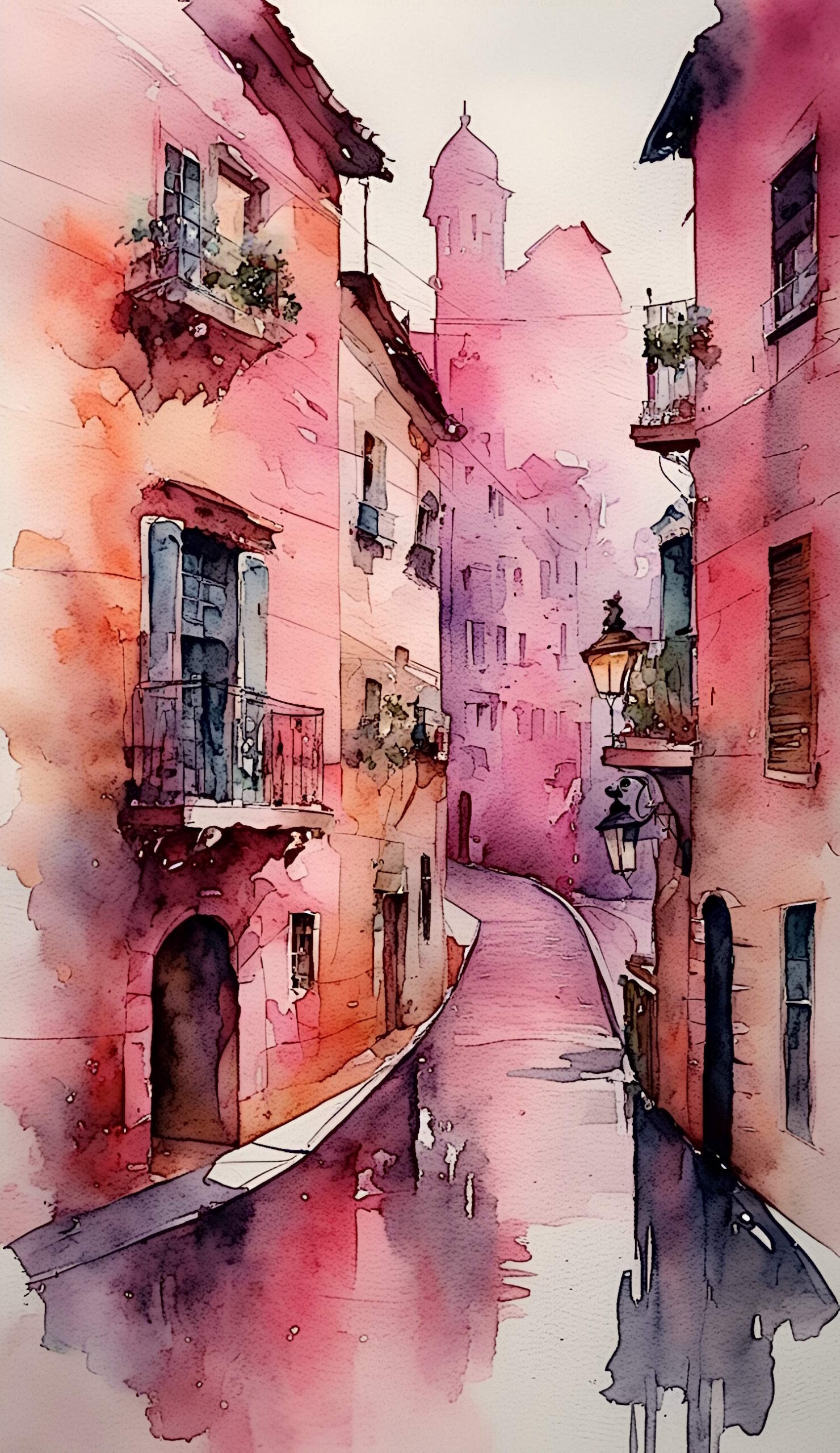Our grandmothers cleaned with less aggressive products than we do today but I have never gotten the feeling that their homes were much dirtier than our homes. They relied on such things as baking soda, ash, vinegar, lemon… Thier techniques have been lost in time in favor of chemical detergents that are toxic to our health and to the environment.
I would like to recover those simple, cheap, ecological recipes and hang on to them, to spread this knowledge so that others might share in on the resource. If you know of any that would fit this category then I for one would love to know about it. You can either include it in an email or share it in a comment and I will add it to the post.
Let's help nature and our economy. Let's make these products with our children so that they too can learn an ecological way to clean through an activity they will enjoy.
To begin I think I will share a plant, one that has been used since time immemorial: Saponaria Officinalis (soapweed which can be found through out North America).
If you are interested to know more about the plants that are used as natural soap I suggest a quick search.
There are a number of products that make use of this plant. But it is also fun to find and process it like our ancestors once did.
I had never used echoballs, before until my grandma gave me one. Apparently just a few of these balls can help clean the clothes. When you hit the clothes inside the washing machine it's like what our great-grandmothers did when they hit them when washing them by hand. My grandmother had used them for a long time and now I have begun to put them in the washing machine.
So without further ado here are some recipes to make simple, cheap and ecological homemade cleaning products which are also effective with natural and biodegradable products.
Most stains and dirt can be effectively removed with products such as baking soda, lemon juice, vinegar, artisan soap and tea tree oil.
Multipurpose Eco-friendly Cleaner
Handcrafted soap (this is a soap made with used oil, high quality and extremely ecological in addition to preventing the oil from ending up in the trash or down the drain like my roommate in college would do, since it is highly polluting for marine life). Make it into soap blocks, we'll need to turn it into flakes for the next step.
Water
In a glass bottle, about a quarter of a gallon or whatever we have at hand make a mixture of handcrafted soap in flakes and water in relation to one to ten, depending on the size of your container.
Leave it to sit and rest, then stir in-between to dissolve, what should be left should have a thick liquid consistency. This cleaner is useful used to leave all types of surfaces bright, shiny and most importantly clean.
Organic multipurpose cleaner (another recipe)
- 20% vinegar.
- 30% cleaning alcohol.
- 50% distilled water.
- 20 drops of lemon essential oil.
- It is used with water and is very clean but you will not get any suds.
Organic Cleaner For Porcelain And Tiles
- Make a mixture of water and lemon juice
- Soak a cloth well in this mixture and wipe it across the dirty surfaces
- Dry with cotton towel
Natural Cleaning Products For The Rest Room
- To keep toilets clean it is useful to use vinegar
- Spray the toilets and leave it overnight
- The next day add the multipurpose ecological cleaner we made first and scrub well.
- Rinse with water
Natural Drain Cleaner
The chemicals used to break down plugs in our drains are among the most polluting and dangerous especially for marine life, remember that everything we throw down the drain ends up in rivers and seas (no matter how land locked we are). The best option is always the mechanical one, (the classic, the snake for example) but if we combine some basic ingredients you will love how easy it can actually be. And I have yet to encounter a plug that could resists this technique.
- Heat water, but never pour boiling water down your drain
- Put 5 tablespoons of baking soda and half a glass of vinegar in the drain and cover for 5 minutes.
- Pour the hot water directly over the drain and pump down until it is unplugged (we usually don't need to pump for long)
- Be careful not to burn yourself with the hot water.
Natural Cleaning, Glass and Mirrors
To let our windows and mirrors sparkle make a natural glass by cleaner mixing:
- 1/2 gallon of water
- 1 tablespoon of the organic cleanser we saw in the first recipe
- 1 tablespoon vinegar
- Clean the surface with a moistened sponge in the mixture
- Dry with newspaper
Organic Cleaning Of Kitchen Counter Tops
To remove germs without chemicals mix:
- 1/2 gallon water
- 2 tablespoons of the organic cleaner we saw in the first recipe
- 30 drops of tea tree essence (you can find it in herbalists or organic product shops).
- With a soft sponge wash the surface of the worktop well, rinse with water and dry with cloth.
Cleaning Tarnished Pans
To clean the pans we scrub the inside with lemon peels or any other citrus, when it is still warm. I was surprised how quickly the tarnish was gone.
Organic Oven Cleaner
Oven cleaners are some of the products with the most toxic ingredients you will find in the kitchen. They are made with ethers, sodium and potassium hydroxide, methylene chloride and petroleum derivatives.
They can cause skin and eye irritations and breathing problems in allergic people, just read the labels for all of the warnings.
Luckily there is an option to leave our ovens spotless, which consists of first removing the grease with a spatula (don't scratch the enamel) and the multipurpose organic cleaner that we made at the beginning.
Make a thick paste with water and baking soda apply to the surface of the oven, then it should be left to work for a couple of hours. Finally clean this paste with clean warm water and dry with a cloth.
Eco-friendly Carpet Cleaners
The first step in cleaning a carpet is to hang it up (if you can) and shake or beat all the dust out, I use a tennis racket but that is an extreme example.
- Dissolve two table spoon of borax in two to three cups of water.
- Using a sponge and gloves clean the carpet with this mixture, rinse with water and let dry in the sun.
Organic Floor Cleaner
With the following mixture of natural products we will get the same cleanliness and disinfection as with commercial and toxic products.
- 3 tablespoons of the multipurpose organic cleaner we saw at the beginning
- 5 tbsp vinegar
- 30 drops tea tree oil
- Put this mixture in the mop bucket to clean the floors
Natural Cleaning Of Fireplace Residue
The black soot that covers window panes on the glass doors in front of the fireplace on the closed wood-burning fireplaces, is easy to clean using the ash that it produces.
- A thick paste is made by mixing ash and water
- With a spatula spread this mixture over the glass then rinse it with clean water and dry with newspaper.
Stain Cleaner/Remover
For difficult stains, a splash of carbonated water, leave it soaked, and you will see how it disappears after washing. And if they're very tough, add a little baking soda and that's it.
Organic And Homemade Liquid Soap For Dishwasher
Every time I have lemons left over I make them into soap. Leave the dishes and glasses with a pleasant lemon smell, and it also comes out cheaper in the end (when I was a graduate student this was a heaven send).
Organic And Homemade Liquid Soap For Dishwasher
Ingredients:
- Three lemons
- Two hundred grams of table salt
- One cup of white vinegar
- two cups of water
Preparation:
- Remove the steams and seeds from the lemons. Wash and cut, on a wooden board, the lemons (un-peeled) into small pieces (so that they can be crushed well in a mix again at maximum power,
- Put this in a pan and over medium heat, simmer for about 15 minutes stirring from time to time, with a wooden spoon, because it tends to stick. I it stars to cook off, it's all right, mix water in, you turn the burner down and it comes off very well,
- Turn it off and leave to cool. When it's cold, stir again, because a dry layer usually forms on top, it comes out easily. You can store it in the fridge or in an air tight jar,
- Use as a normal dishwasher detergent, pour two tablespoons and wash normally.
Salt and vinegar are not only used in the kitchen for food. As is already well known, they are also used for cleaning. In this case, salt is an efficient stain remover, and vinegar is used to remove bacteria, is disinfectant and cuts fat. Vinegar also neutralizes odors; lemon, in addition to providing the characteristic smell, is also traditionally seen as a mild disinfectant.


